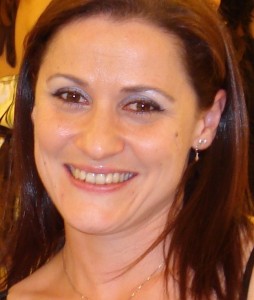
Can we really talk about sex?
The alarming statistics of young girls falling pregnant at a younger and younger age are often blamed on ‘not enough’ sex education, or conversely, ‘too much information’ which makes teenagers curious and eager to experiment. Josanne Cassar speaks to PSD teachers, parents and teenagers to find out more
THE TEACHERS
 Pauline Baldacchino is a former PSD teacher in a Church school, and is now a school counselor
Pauline Baldacchino is a former PSD teacher in a Church school, and is now a school counselor
“From my past experience, there are two things you need to take into account when speaking about the teaching of sex education by PSD teachers. First of all, whether one is teaching in a Church school or in a State school, and secondly, which Church school, as these schools are autonomous. So I can only talk about the one I used to teach in.
In my case, I had discussed these matters with the Head, especially regarding the teaching of contraception. Both Heads (as the Head had changed in the mean time) had agreed that I should go ahead as long as it is for the good of the students. We taught them about sexually transmitted diseases, as well as about their bodies, sex and birth control. After all, they also have religion lessons so they are fully aware of the moral issues. We also used to bring people from the health department to speak to the students. Once I was asked by the department to carry out a questionnaire about sexuality, but we only had problems with one parent as there was a question about oral sex, but the other parents were quite co-operative.
Personally, I feel that the best place for children to learn about sex is within the family… most issues need to be discussed there and going for family therapy (when needed) is also very important. Parents have to understand their teenagers more and listen to them. They have to guide them and not be afraid of them (or of each other!) when it comes to discussing sex. They also need to inform them, while going down to their level. They really need to be on the same wavelength because, from my experience, when parents handle sex education like that, the youngsters feel more supported and understood.”
 Roger Tirazona is a PSD teacher at a state school
Roger Tirazona is a PSD teacher at a state school
“The difficulty or easiness of teaching sexuality is very subjective. Firstly it depends on the group you are working with. This not only varies from class to class within the same school for the same teacher, but also varies from school to school depending on the sub-culture of students in the school (where they are coming from and their families), the ethos of the school etc. Ultimately it also depends on the teacher himself.
Something that a PSD teacher ought to do for instance, is to build a rapport; a relationship with the students. Indeed no subject can be truly taught unless the teacher builds a relationship where the learning can flourish, especially with a subject like sexuality where certain queries students might have are usually “taboo”. So one has to evaluate a lot the effectiveness of the teacher himself, because obstacles to teaching are not always easily identifiable.
The dilemmas that I find myself in, is when students know “too much”. What do I mean? Many of these students, especially the not-very-academic ones, tend to be very street-wise, go out, socialise more and they hear a lot of things from their peers and from older peers. Sometimes they would ask about things they would have been exposed to which would not be in the objectives of my lesson or scheme of work and not even in the syllabus of their year. Should I address this or tell them they are not meant to learn about this until the next year? I have a personal policy for myself, that when students during discussion, show that they have misconceptions about certain things I address them at any level, but adapt my language and approach according to the age. However I feel it is an irresponsibility to allow misinformation, particularly about sexuality, to proliferate.
Another immediacy issues which comes up when I discuss sexuality is homophobia. All students have their own baggage which they bring from home. Although the situation today is very different from my own school days in a church school, you do find the odd student who expresses intense hatred for homosexuals. The positive thing is when other students defend homosexuals in their discussion without needing me to intervene; some of them even share the fact their family members are gay. At this point, in the very limited time that I have with the students (a lesson a week) I would think it is more important to address the hatred of homosexuals by this student than continue plowing through the planned lesson on sexuality. I would assume in a school with a religious ethos, the dilemma of addressing homophobia is a bit different. Can a PSD teacher in a church school take a neutral stance on gay marriage or gay adoption for instance? I teach in a state school so I have less problems there. However it would be interesting to note that the MGRM is hardly ever, if at all, invited to schools to give talks. Lately the MGRM distributed posters with a message against the bullying of homosexuals. Who knows how many of these posters were actually stuck to student notice boards?
Another difficulty that I have is the fact that I am not allowed to use a demonstration kit for sex education. As far as I know, a teacher is not allowed to bring a condom to school to show it to students. Yet, as part of the syllabus where I have to teach about contraception, I am to inform students that the effectiveness of a condom depends a lot on how well the condom is used. Though I use power point presentations, it would be far more effective to use kits such as used in the UK and the USA. So we still have a sort of “institutionalised” taboo on sex.
Another major issue is the fact that students learn a lot about sex and sexuality during religion classes, which would give a very one-sided view of sexuality, obviously, commensurate to Catholic doctrine. The problem is that many students come to my class and complain they are receiving mixed messages, because in PSD I do not speak in terms of “dos and do nots”, “sinful or not sinful” or “allowed and forbidden”. This is where I have to explain the difference between the two subjects. This is where I have to resort to my training in ethics to explain secular reasons and consequential reasons of why, for example, promiscuity can be a bad idea. I think the fact that in some instances, students learn about sexuality only during religion and science lessons, is leaving a lacuna. Perhaps not only in sexuality; in all ethical and moral subjects, I think it is unwise to expose students only to religious or theological ethics, because we should also expose them to other secular ethical world views.
THE TEENAGERS
Martina is 16 years old and attended a church school
“I would say that I obtained most of my information about sex from my mother. The school had sent my parents a letter when they were going to start teaching us sex education, but by that time she had already explained everything to me. At the time I was very startled as I was about ten years old and I didn’t want to know…I remember I started crying, but then when it came up in school I was fine with it.
During the lessons, they used to tell us to use protection, and in Form 5 we had a power point presentation where they spoke to us about everything, even about disease. However, as I become older I’ve realized that they should have emphasised more on the importance of being emotionally ready for sex and not just the physical consequences.
When it comes to talking about sex, my parents are very open with me and I think it’s good that I can ask them about anything.
I don’t think there’s a lot of pressure to start having sex in my group of friends; I have friends who have been dating for three years and they feel no pressure. My girlfriends and I do talk about it a lot though,
I think girls who fall pregnant are simply careless; it’s not because they do not know about birth control. Obviously, a lot of people are having sex before marriage, it’s become quite common, but sex education is there so there’s no excuse. I think a lot of girls just assume “it won’t happen to me”.
Luke is 16 years old and attended an independent school
“At school, sex education was taught to us with a lot of detail. There was more then enough of the subject and everything was taught openly without any censorship. Contraception was the topic which came up the most during sex education.
Since sex is such a delicate topic I do tend to be a little embarrassed when talking to my parents about it, but not to the extent that I’m not able to communicate with them about the subject. My parents answer with full honesty.
In general there is quite a lot of pressure to start having sex between friends, especially among boys, because it is labelled as a “cool” thing to do.
In my honest opinion I think girls are getting pregnant at such a young age for two reasons. First, girls and boys go out drinking and get drunk, and then they end up having sex without contraceptives. Which then leads to the dreadful news that your girlfriend is pregnant. Another reason why girls are getting pregnant is because girls tend to go out with older guys. Older guys have one thing on their mind: sex. Eventually their girlfriend will get pregnant and then it’s time to abandon ship.”
THE PARENTS
Sophie Graziosi, 11-year-old daughter goes to a state school
“I feel that the subject of sex education at school is sufficiently covered and am satisfied with it – there’s not too much of it but it’s mentioned enough so as to introduce the subject to the kids.
I do discuss sexual issues with my 11-year-old daughter and feel at ease, and in fact, I find it difficult not to give my opinion.
I feel that a child should feel comfortable enough to speak about sex at home as well as at school, so for me both are important, just in case there is something they wish to ask someone who isn’t their parent
I realise that some say that too many details during sex education at schools are making teenagers more intrigued with sex, but I don’t agree with this view.
My daughter is still rather young so when I speak to her about sex it is more ‘in general’ or to tell her what she may go through in the future… but this question makes me realize that I should bring up this subject in the future which is probably in a year or two.”
 Carmen Cuschieri, teenage daughter went to a church school
Carmen Cuschieri, teenage daughter went to a church school
“We were not informed of which topics would be covered before hand at school. When lessons were given my daughter had already been informed gradually by myself and my husband since we did not want to leave it up to strangers to teach her sex education. After lessons were given in school, I was quite satisfied with the information given, which was very close to what we had already told her.
We have always spoken about sexual issues with her since she was very young, giving her the information she needed for her age. So now we do not find it difficult to talk about sex.
I don’t think that the fact that teenagers are more sexually active today has to do with sexual education. Nowadays, children are exposed to a media that portrays sex as being more important than having moral values, and it’s natural for them to imitate their idols on TV.
When it comes to peer pressure, this depends on which group of friends she hangs out with. She used to hang out with a group, in which most of the girls were sexually active. When we realised this we told her to avoid this group and we explained the repercussions of having this kind of attitude towards sex. We are very outspoken with her, and we always point out that besides the possibility of an unwanted pregnancy, she would be taking the risk of becoming infected with sexual diseases if she is loose.”
- June 4, 2012 No comments Posted in: Features





